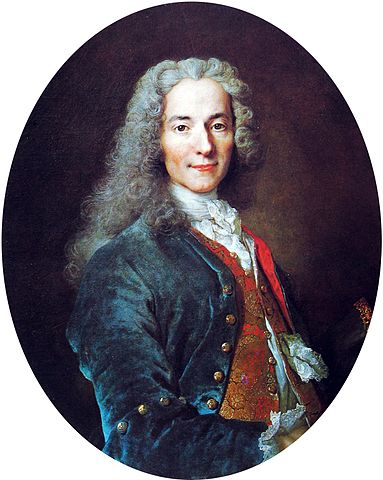
America’s only Political Economy Book Club discusses Candide, Voltaire’s 1759 masterpiece that ridicules religion, theologians, governments, armies, philosophies and philosophers through allegory. As Jean Starobinski notes,”The fast-paced and improbable plot—in which characters narrowly escape death repeatedly, for instance—allows for compounding tragedies to befall the same characters over and over again.”
It’s only a hundred pages or so depending on the translation and format, and is available in English translation free from Project Gutenberg (in several formats) as well as from the Internet Archive, where there is also an audiobook.
PEBC coordinator Bob Matter would appreciate an RSVP, if possible, from those planning to attend.
In recent years, Georgists have created a large amount of video material about fundamental economic concepts, their basis and their application. Some are brief, some extended. All are helpful in understanding what we teach, why it’s important, and how it can be used. Producers include Earthsharing, Earthsharing Australia, Council of Georgist Organizations, and others. We’ll be watching a bunch of these during a four hour period Tuesday evening. Feel free to drop by for as long (or short) as you’d like. A list of the videos, with links, will be provided, as will some light refreshments.
The event is free, altho donations to help pay our rent and other expenses are appreciated.

Cook County isn’t broke either. Neither is Chicago.
In this session you will learn about the legitimate earnings that our communities generate every day, and how collecting these earnings would allow removal of barriers to productive work which make it unnecessarily difficult for working people to earn a living.
There’s plenty of waste and fraud throughout government, but that’s not the focus here. Even an honest and efficient government requires revenue, and the source of that revenue determines whether we can have prosperity and freedom, or — something else.
PREREGISTRATION MANDATORY. This program is free, but due to building policies you must pre-register by email or by phoning us at 312 450-2906.

Cook County isn’t broke either. Neither is Chicago.
In this session you will learn about the legitimate earnings that our communities generate every day, and how collecting these earnings would allow removal of barriers to productive work which make it unnecessarily difficult for working people to earn a living.
There’s plenty of waste and fraud throughout government, but that’s not the focus here. Even an honest and efficient government requires revenue, and the source of that revenue determines whether we can have prosperity and freedom, or — something else.
PREREGISTRATION MANDATORY. This program is free, but due to building policies you must pre-register by email or by phoning us at 312 450-2906.

Decades before Wealth of Nations, Adam Smith wrote what he seems to have considered a superior work, Theory of Moral Sentiments. He wrote:
How selfish soever man may be supposed, there are evidently some principles in his nature, which interest him in the fortune of others, and render their happiness necessary to him, though he derives nothing from it except the pleasure of seeing it.
Wikipedia asserts:
Smith critically examines the moral thinking of his time, and suggests that conscience arises from dynamic and interactive social relationships through which people seek “mutual sympathy of sentiments.”[74] His goal in writing the work was to explain the source of mankind’s ability to form moral judgement, given that people begin life with no moral sentiments at all. Smith proposes a theory of sympathy, in which the act of observing others and seeing the judgements they form of both others and oneself makes people aware of themselves and how others perceive their behaviour.
The Theory of Moral Sentiments has been printed in numerous editions, and is also available free on line. Smith revised the book throughout his lifetime; it’s best to avoid the first edition, and choose one published after his death in 1790.
In this session we’ll discuss parts 1-3 of the book, taking up parts 4-7 on November 20,

